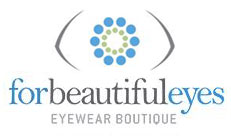A concussion or traumatic brain injury (TBI) can have far-reaching effects beyond the initial impact. One of the most commonly affected systems is vision, as the brain and eyes work closely together to process information. Even a mild brain injury can disrupt visual function, leading to difficulties in daily activities.
At For Beautiful Eyes, we are skilled in assessing and managing post-concussion vision problems, helping patients regain clarity and comfort in their eyesight.
How Concussions and Brain Injuries Affect Vision
More than 50% of the brain is involved in visual processing. When a concussion or brain injury occurs, the delicate connections between the eyes and the brain can be disrupted, resulting in a variety of vision-related symptoms.
Common Visual Symptoms After a Brain Injury
- Blurred or Double Vision – Difficulty focusing on objects or seeing two images instead of one.
- Light Sensitivity – Increased discomfort in bright environments, particularly outdoors or when using screens.
- Eye Strain and Fatigue – Eyes may tire quickly when reading, watching TV, or using digital devices.
- Headaches and Dizziness – Frequent headaches linked to eye movement, focus, or light exposure.
- Difficulty Tracking Objects – Problems following moving objects, leading to challenges in reading or playing sports.
- Poor Depth Perception – Trouble judging distances, which can affect balance and coordination.
- Visual Motion Sensitivity – Feeling disoriented or nauseous in busy visual environments, such as shopping centres or crowded streets.
If you or a loved one are experiencing any of these symptoms after a concussion or brain injury, it’s essential to seek professional evaluation.
How Long Do Vision Problems Last After a Concussion?
The duration of post-concussion vision problems varies. Some people recover within a few weeks, while others may experience persistent issues for months or even years. Prompt diagnosis and management are key to improving recovery time and reducing discomfort.
In many cases, vision therapy, corrective lenses, or light-filtering solutions can help manage symptoms and improve overall function.
Why an Eye Exam is Crucial After a Concussion
Following a concussion or brain injury, a standard medical check-up may not fully assess the impact on your vision. A comprehensive eye exam at For Beautiful Eyes can detect subtle visual impairments that could otherwise go unnoticed.
Our assessments include:
- Eye Tracking Tests: Evaluating how well your eyes move together when reading or following objects.
- Binocular Vision Assessment: Checking how effectively both eyes work together to maintain focus and depth perception.
- Light Sensitivity Testing: Identifying issues related to photophobia and visual discomfort.
- Neurological Visual Screening: Examining the connection between the eyes and brain for any disruptions in processing.
Our experienced optometrists use advanced diagnostic technology to create a tailored treatment plan based on your specific needs.
Treatment Options for Post-Concussion Vision Problems
We provide personalised treatment strategies to help patients recover their visual function after a concussion or brain injury. Our treatment options may include:
1. Specialised Glasses and Lenses
- Tinted or Blue Light-Blocking Lenses: Help reduce light sensitivity and digital eye strain.
- Prism Lenses: Correct double vision and improve depth perception.
2. Vision Therapy
- A structured program of eye exercises designed to improve coordination, focus, and tracking abilities.
- Helps retrain the brain to process visual information more effectively.
3. Eye Rest and Gradual Visual Exposure
Patients with visual motion sensitivity may need structured screen time limits and gradual exposure to bright lights or crowded spaces.
4. Collaboration with Other Healthcare Providers
We work alongside neurologists, physiotherapists, and occupational therapists to ensure a holistic recovery plan for concussion patients.
Protecting Your Vision After a Concussion
If you have suffered a concussion or head injury, follow these steps to minimise visual strain and aid recovery:
- Rest Your Eyes – Limit screen time and take frequent breaks from visually demanding tasks.
- Wear Sunglasses Outdoors – Reduce light sensitivity and discomfort.
- Avoid Rushed Reading or Digital Work – Gradually increase exposure to text-based tasks as symptoms improve.
- Follow Up With an Optometrist – Regular eye exams help track recovery and ensure your vision is stabilising.
Book an Eye Exam for Post-Concussion Vision Care
If you or your child have experienced a concussion, don’t overlook the impact it may have on vision. For Beautiful Eyes provides post-concussion eye care to help you regain clarity and comfort.
Book an eye exam to assess your visual function and start your recovery journey.
